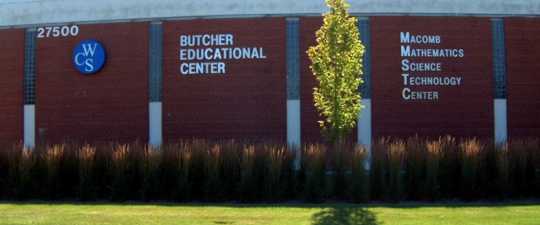Education held a prominent place in President Obama’s State of the Union address Tuesday night, as he called for a re-commitment to "investing in better research and education" to meet “our generation’s Sputnik moment.”
Obama declared, "To win the future ... we also have to win the race to educate our kids." His words deliberately echoed his administration's Race to the Top program, even as he sounded some familiar themes, including the responsibility of parents and communities, the need for higher expectations in schools, and the importance of excellent teachers.
And he also put forth a few more specific proposals:
- Prepare 100,000 more science, technology, engineering, and math teachers by the end of the decade.
- Make permanent the tuition tax credit – worth $10,000 for four years of college – and expand the Pell Grant program.
- Replace No Child Left Behind with a new, more flexible law, that he said should be modeled after his competitive Race to the Top grant program.
That last point had a few education experts scratching their heads, since Race to the Top is a totally different animal from the broader Elementary and Secondary Education Act (ESEA), the formal name for No Child Left Behind. The ESEA is the means by which the federal government delivers most of its money to schools and states – more than $100 billion, mostly determined by certain formulas, compared with the $4 billion of competitive grants that made up Race to the Top.
“He’s putting his chips on something that has limited usefulness, but it’s not a broad usefulness, and we don’t even know yet how well states will spend the money from Race to the Top,” says Jack Jennings, executive director of the Center on Education Policy in Washington, who otherwise liked the education themes Obama sounded in his speech. “With No Child Left Behind, he should have talked about [the need for] broader reforms and improvements and raising standards, rather than making the theme of competitiveness the main thing.”
Race to the Top was widely seen as spurring big legislative changes in states, particularly around more accountability for teachers, as they vied for the pools of money. But it was also criticized by many who felt the priorities it emphasized were wrong, were disappointed in the selection of winners, or felt that a competition – that by definition left many states and districts out of the grants – was the wrong way to go.
“I think he’s trying to say Race to the Top … is the way to get consensus between Republicans and Democrats for the reauthorization of the ESEA, and I don’t think it will play out that way,” says Grover “Russ” Whitehurst, director of the Brown Center of Education Policy at the Brookings Institution.
Mr. Whitehurst also says he would have liked to have seen a more coherent, comprehensive education agenda laid out rather than a few pet proposals, and wonders what the federal role will be in goals like increasing the numbers of math and science teachers.
“The devil will be in the details here, and we’ll need to see them in the budget proposal,” he says.
Still, many education reformers were gratified to see education accorded such a prominent place in the speech and in Obama’s agenda, particularly at a time of economic hardship.
“The themes were clichéd, but they were good clichés,” says Frederick Hess, the director of education policy studies at the American Enterprise Institute, who says he’s happy that Obama continued to emphasize the role of parents, the need for better teachers, and the need for funding to be attached to school performance.
“If we take these steps – if we raise expectations for every child, and give them the best possible chance at an education, from the day they’re born until the last job they take – we will reach the goal I set two years ago: by the end of the decade, America will once again have the highest proportion of college graduates in the world,” Obama said.
“These were strongly phrased sentiments, and something that would have been startling to hear a national Democrat say even four or five years ago,” says Mr. Hess. “Even as we’ve been wrestling with foreign challenges and economic difficulties, to his credit, he and his administration have continually tried to put education forward."
